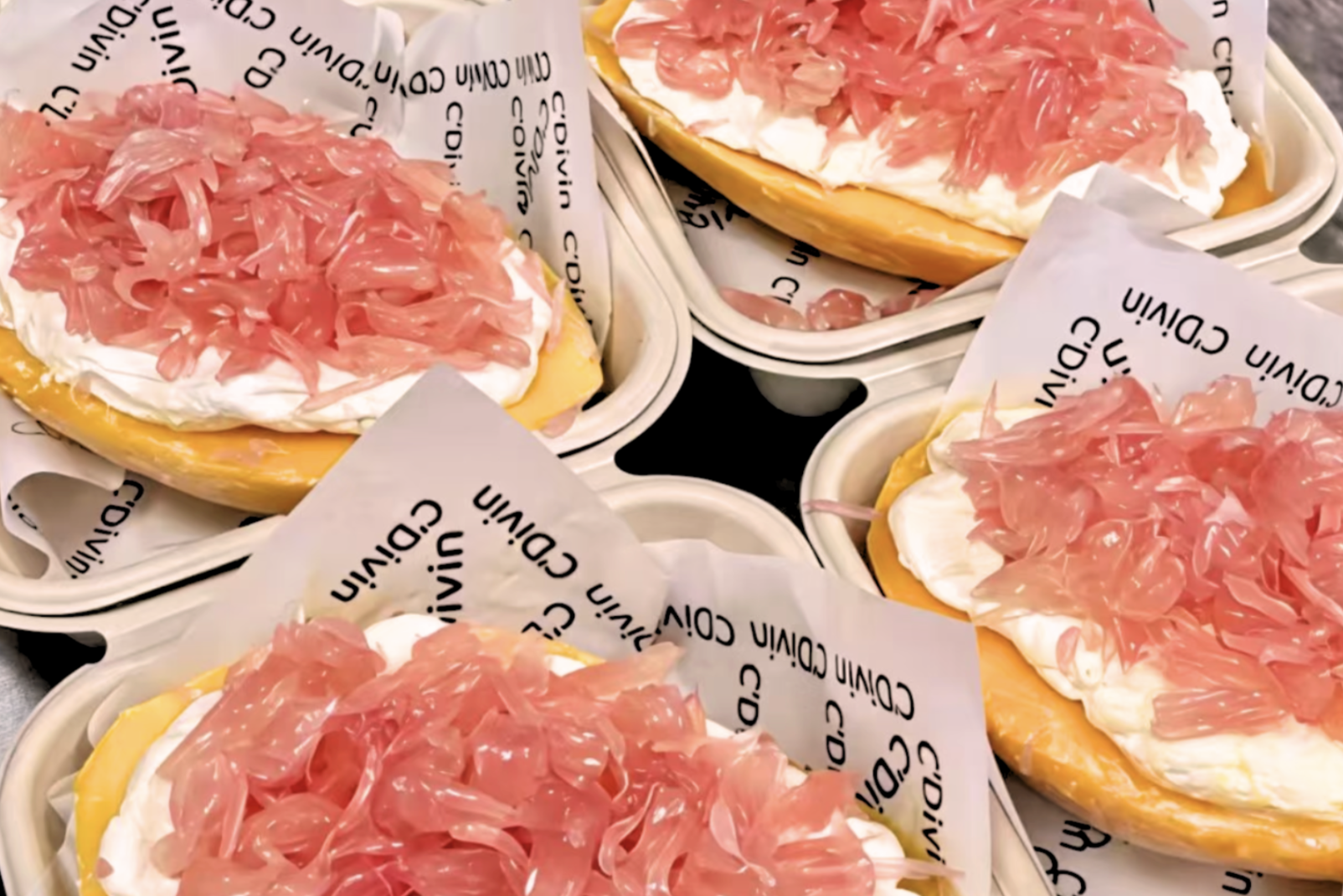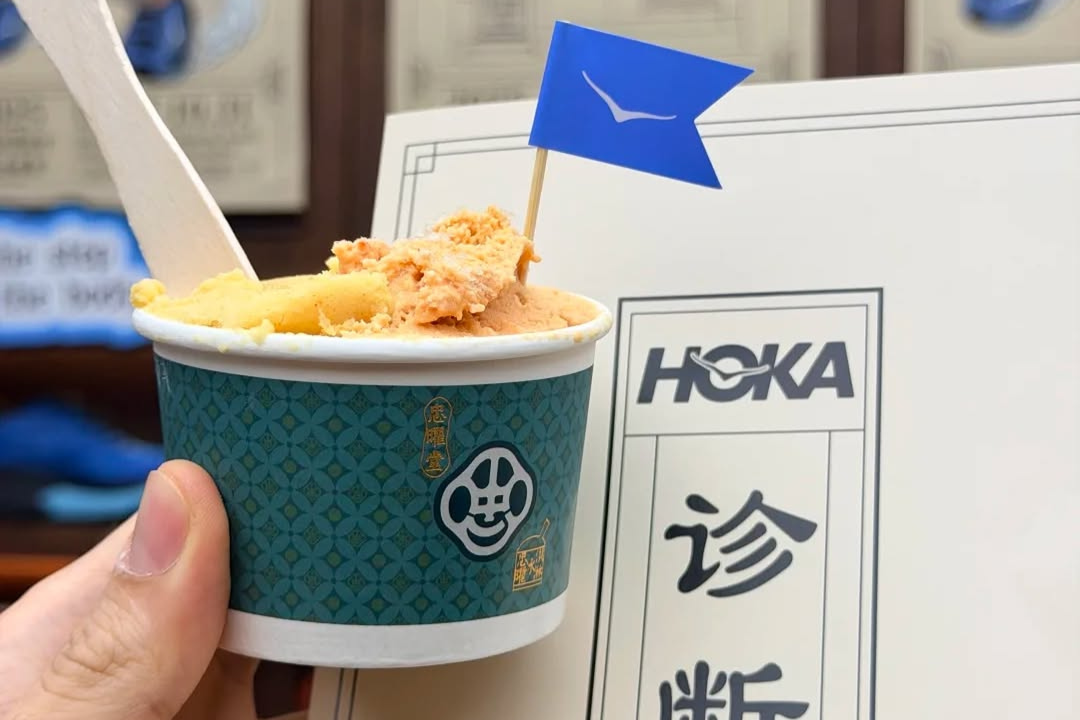Rumah launched on Chinese New Year in 2023 in bustling Hong Kong, and has since become a vital touchstone of home for the Indonesian diaspora, offering traditional kueh with a modern twist.
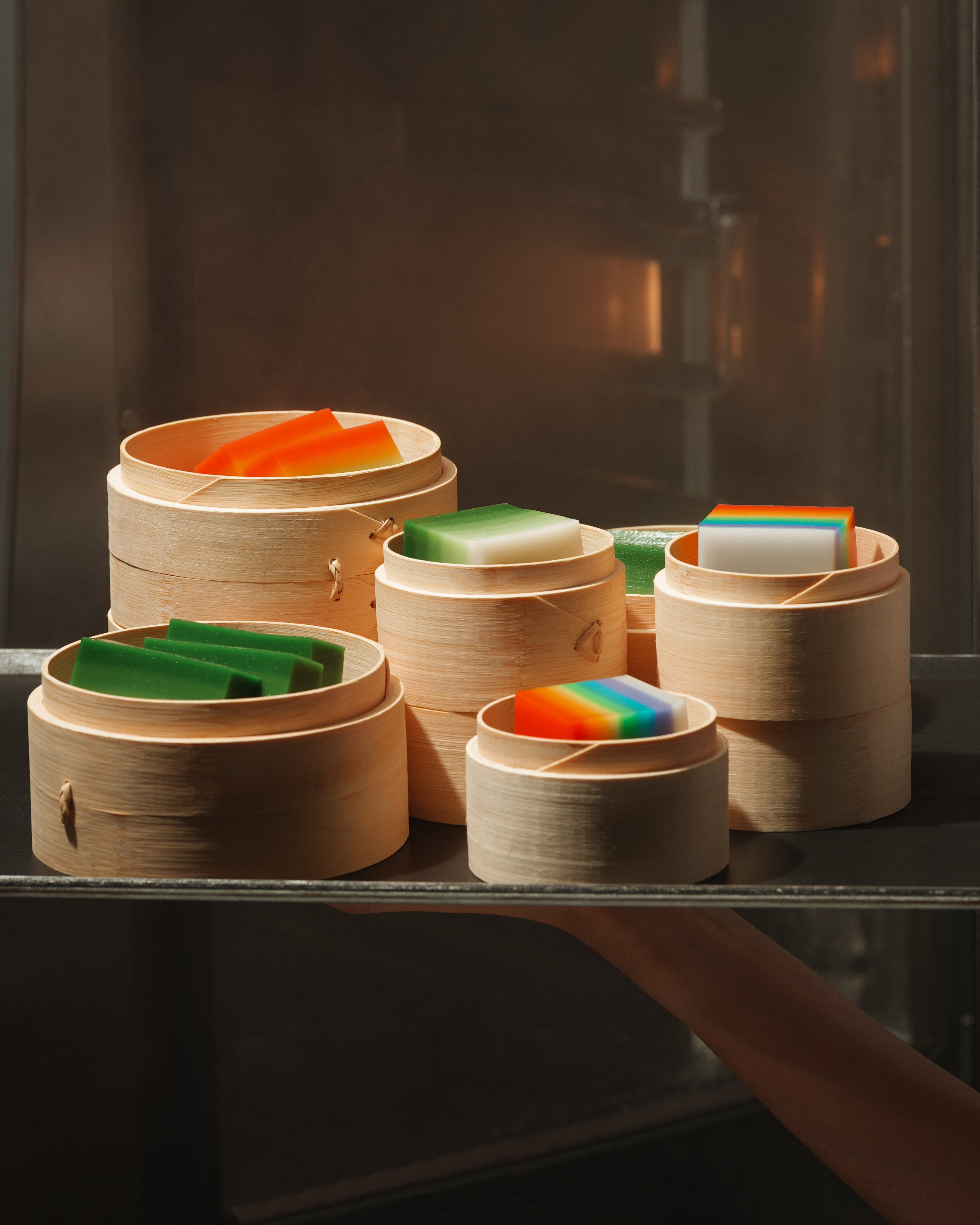
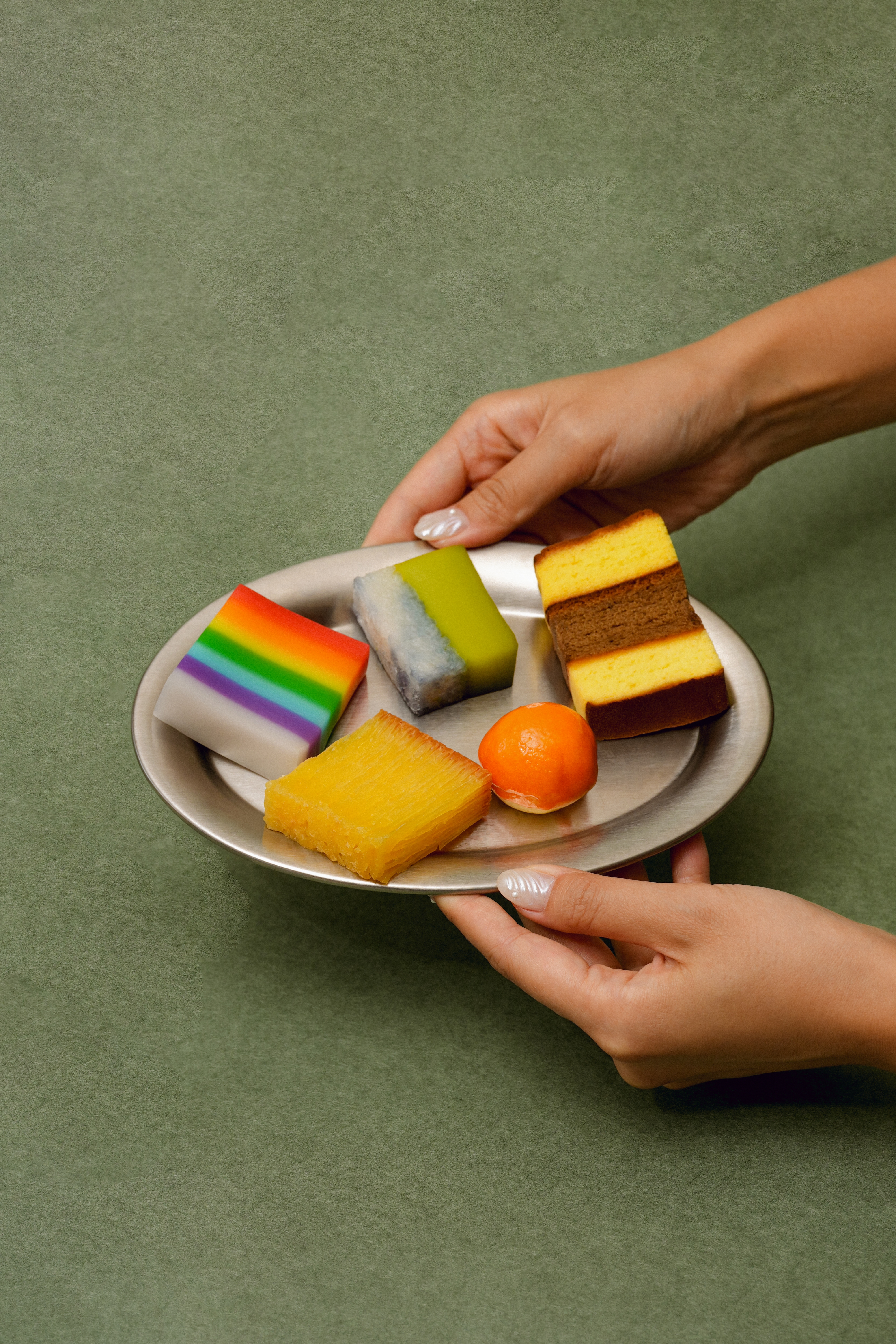
Founded by Kelly Chan, an Indonesian living in Hong Kong, and Mel Ng, who is of Malaysian descent, Rumah reimagines the presentation of kueh while faithfully preserving its traditional, authentic flavors.
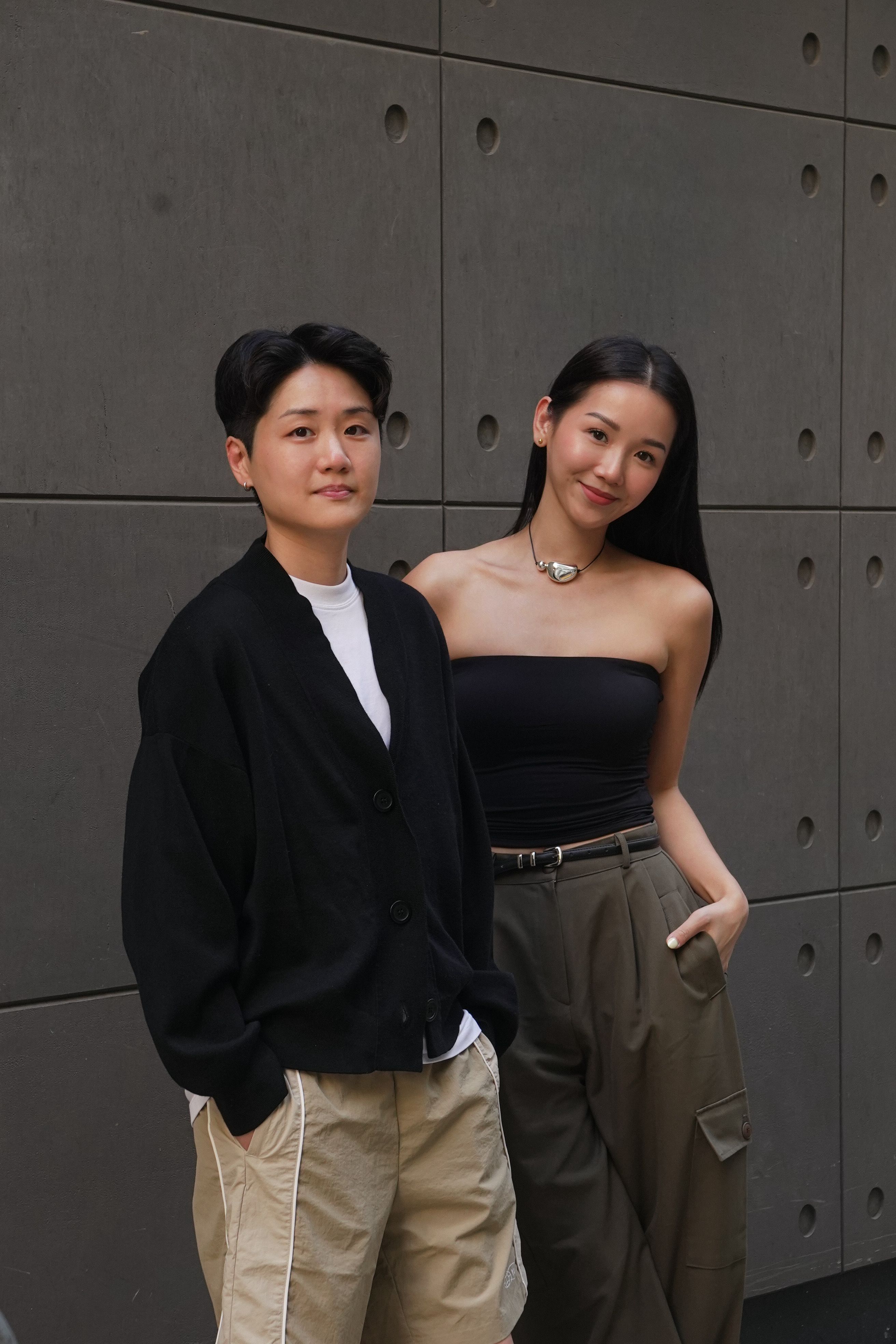
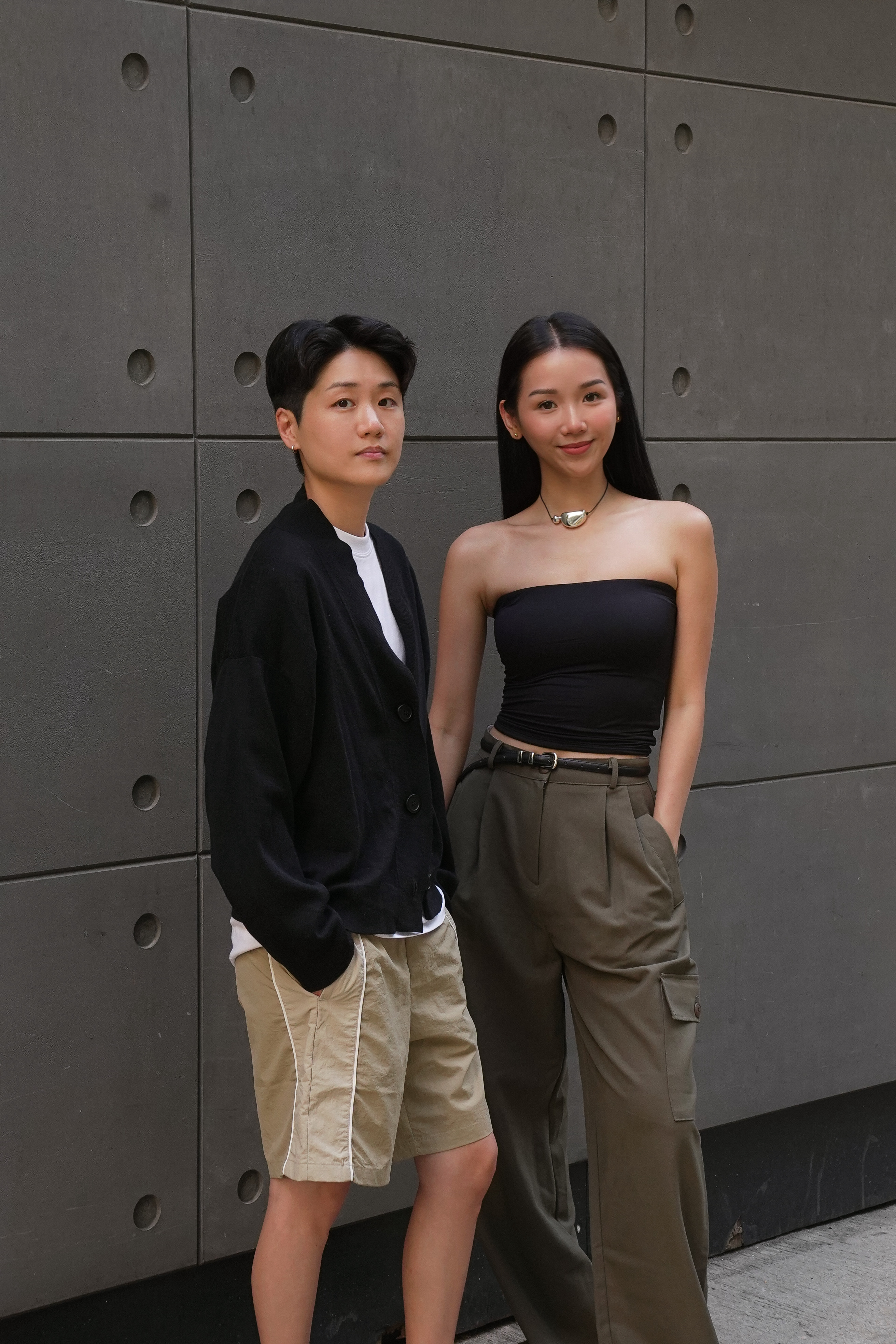
Chan’s connection to food runs deep. After immigrating to Hong Kong in 1998, her mother opened an Indonesian restaurant to forge a new community—embedding in Chan, from a young age, the power of cuisine to create a sense of home.
“My mom did what she was good at—she opened a restaurant to take care of us. Growing up with a father who was a food supplier and a mother running an Indonesian restaurant, food became part of my DNA.” This immersion in the F&B world fuels her mission to introduce Southeast Asian desserts to Hong Kong. While Thai and Vietnamese cuisine are widely embraced in the city, Indonesian culture and flavors remain underrepresented.
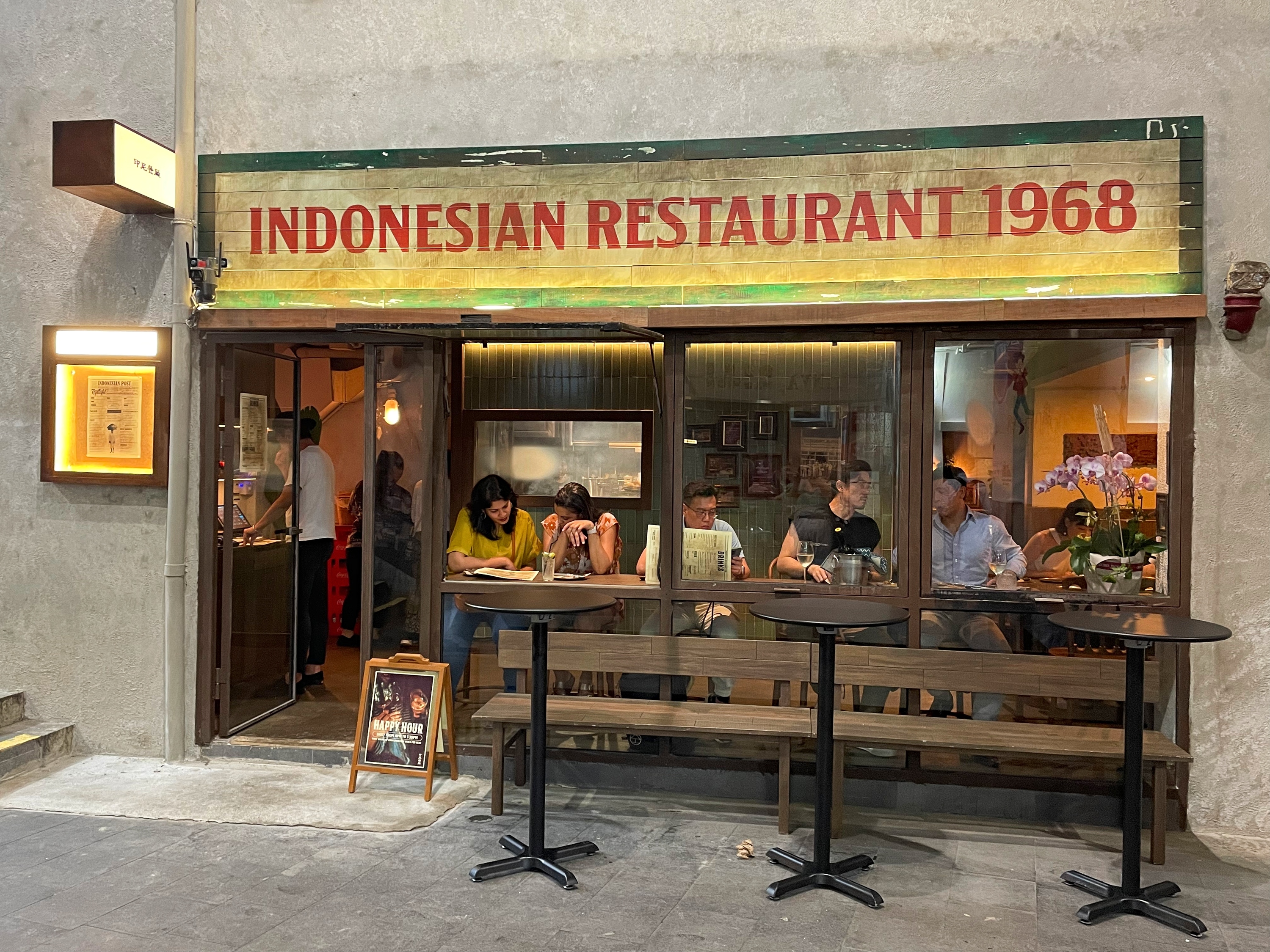
For Chan, Rumah is more than a food brand—it’s a culinary homecoming and a deeply personal journey of rediscovery, healing, and cultural reconnection. As a third-culture kid growing up in Hong Kong, she often grappled with questions of identity and belonging. “My upbringing has definitely been the biggest motivation behind starting Rumah,” she reflects. “Since I was young, I faced discrimination and misconceptions about being Indonesian. Those experiences have stayed with me.”
These early encounters with cultural bias shaped her vision for Rumah not just as a place to serve food, but as a platform for storytelling and bridge-building. Fluent in multiple languages and deeply attuned to the nuances of cross-cultural life, Chan sees her role as that of a connector—someone who can foster understanding between communities and celebrate the richness of Indonesian heritage in a city where it’s often overlooked. Through Rumah, she invites others to explore identity, embrace diversity, and find comfort in shared experiences.


“I want people to see the name ‘Rumah’ and instantly connect it to Indonesia, because this is the story of my upbringing, my family, and my experience as a third-culture kid in Hong Kong,” Chan says.
On Instagram, Rumah spotlights its signature kueh lapis, a layered cake made from rice flour. But their versions are distinctly their own, featuring gradients like green and black sesame—colors rarely seen in traditional Indonesian shops. Each cake, whether in classic pandan or inventive tiramisu, requires a meticulous, labor-intensive process that takes around ten hours.
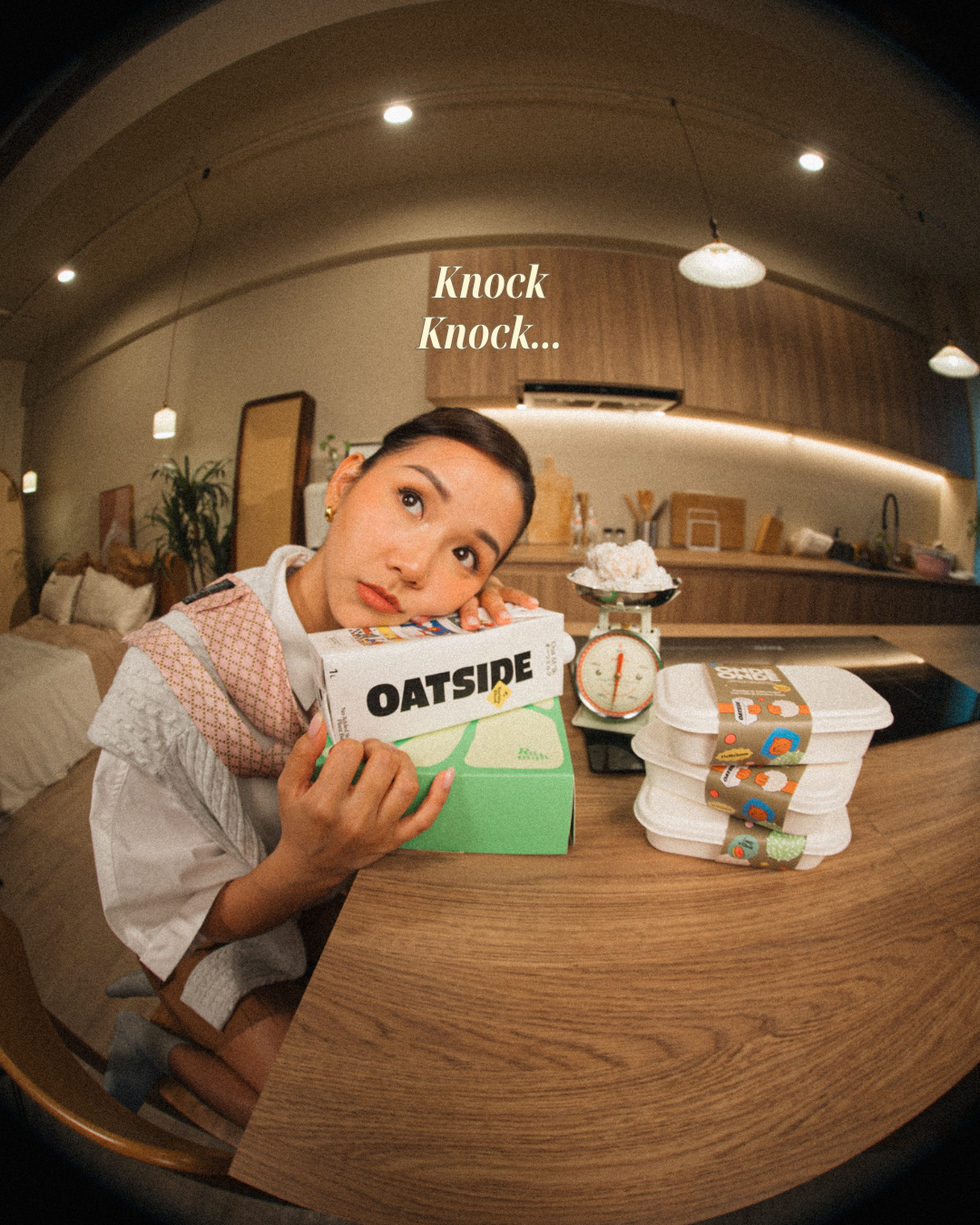
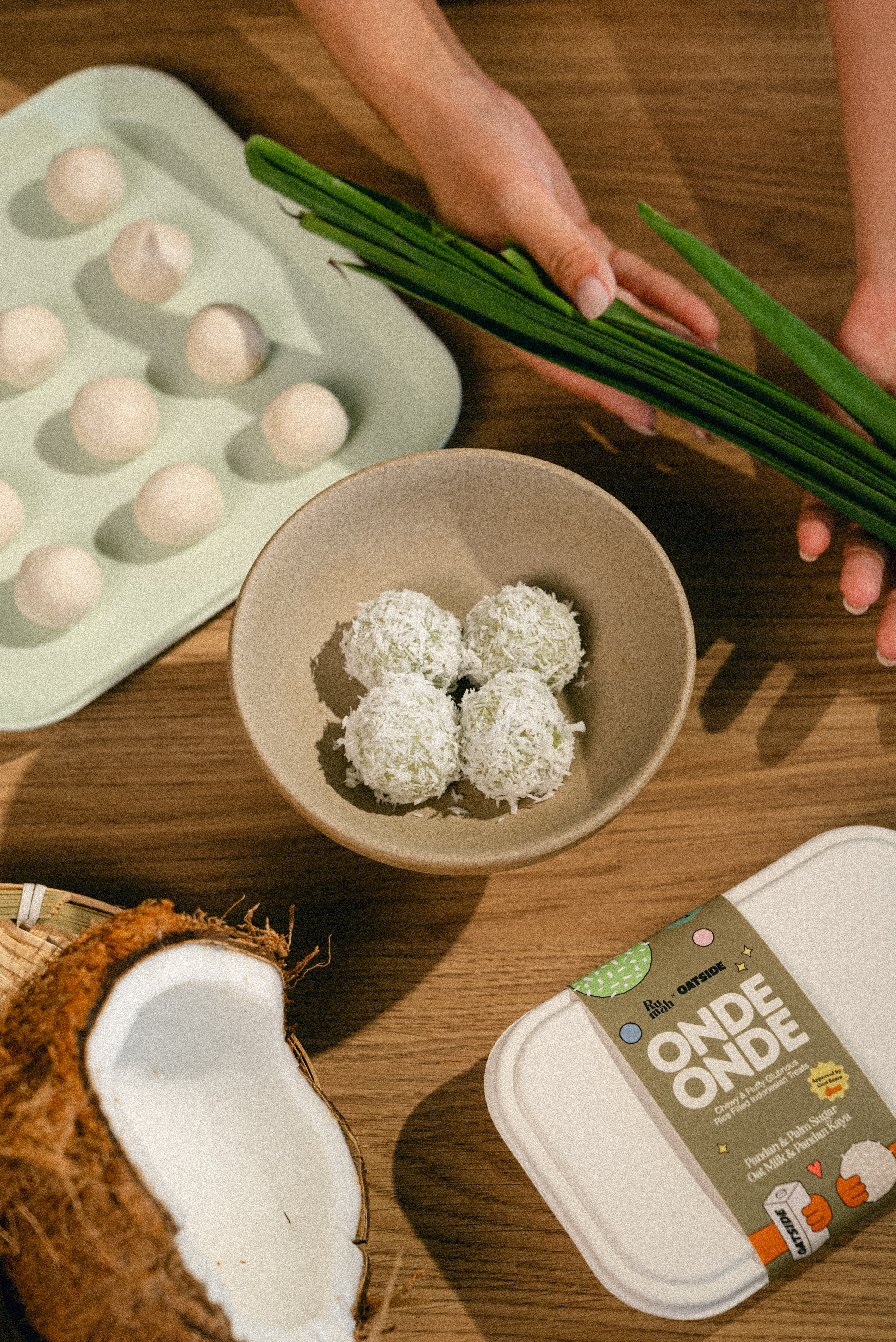
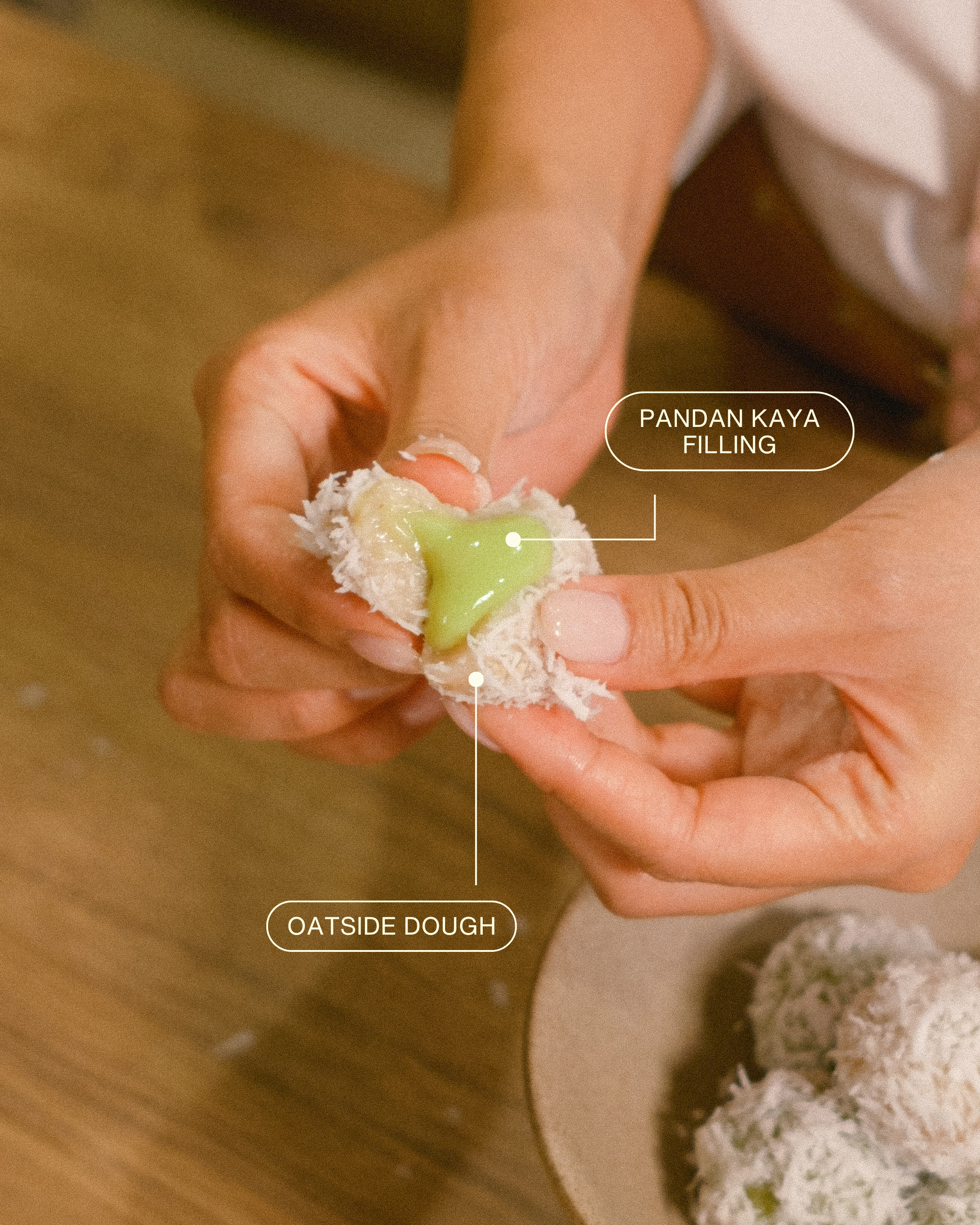
While their most popular item remains the vibrantly colored and flavored kueh lapis, the team is also adapting some offerings with more universal tastes to better suit the Hong Kong palate.
“My mom initially wanted to launch her own sambal. But I realized that sambal, being pasty, would be a tough sell in a market that leans toward Chinese chili crisp. So I pivoted to layered cake—something Hong Kongers are more familiar with,” Chan explains.
The result is a cake that feels both familiar and fresh. By cutting the sweetness and introducing a soft, chewy texture, Rumah has found a signature style that now has both locals and expats lining up for a taste.
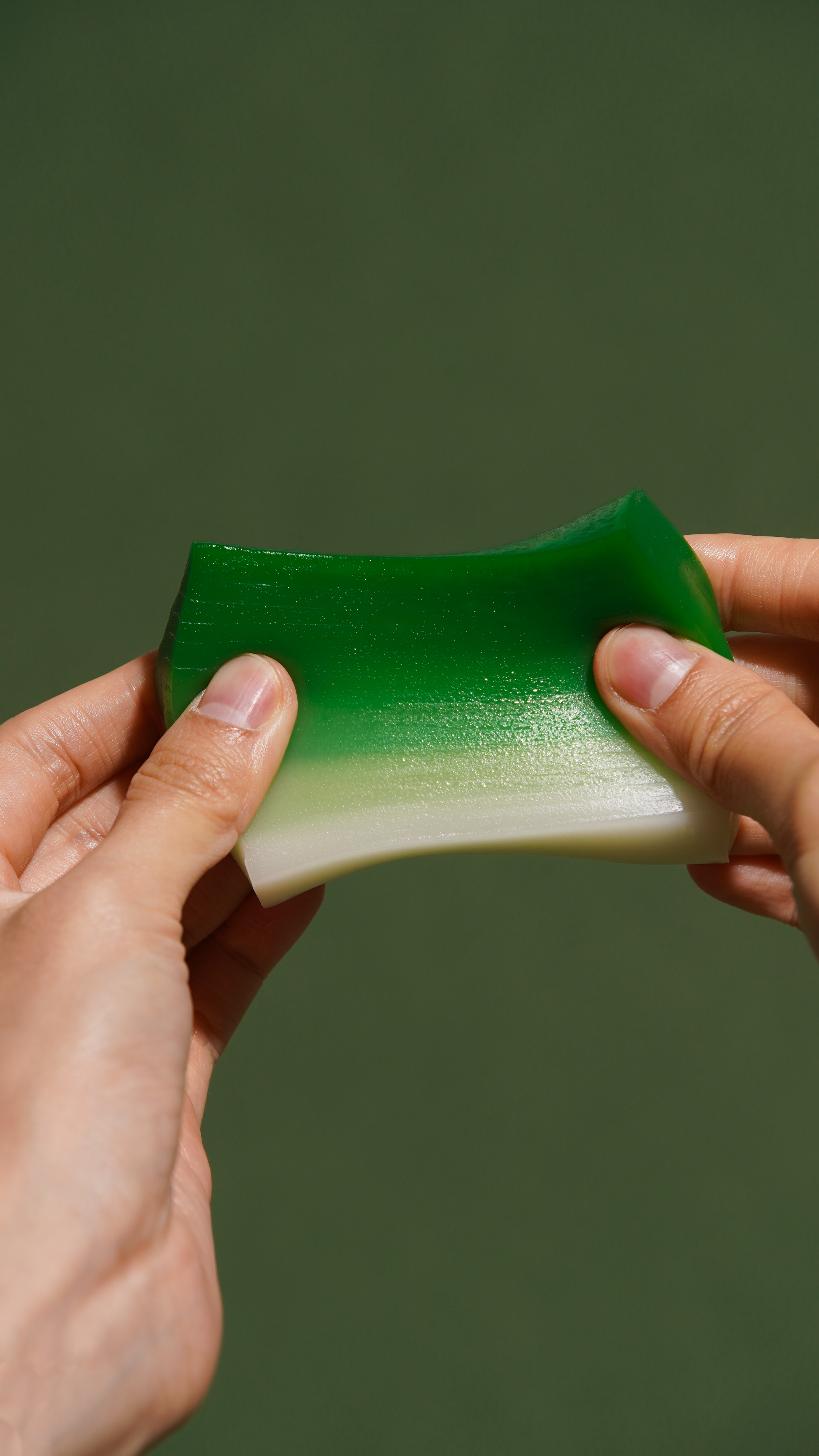
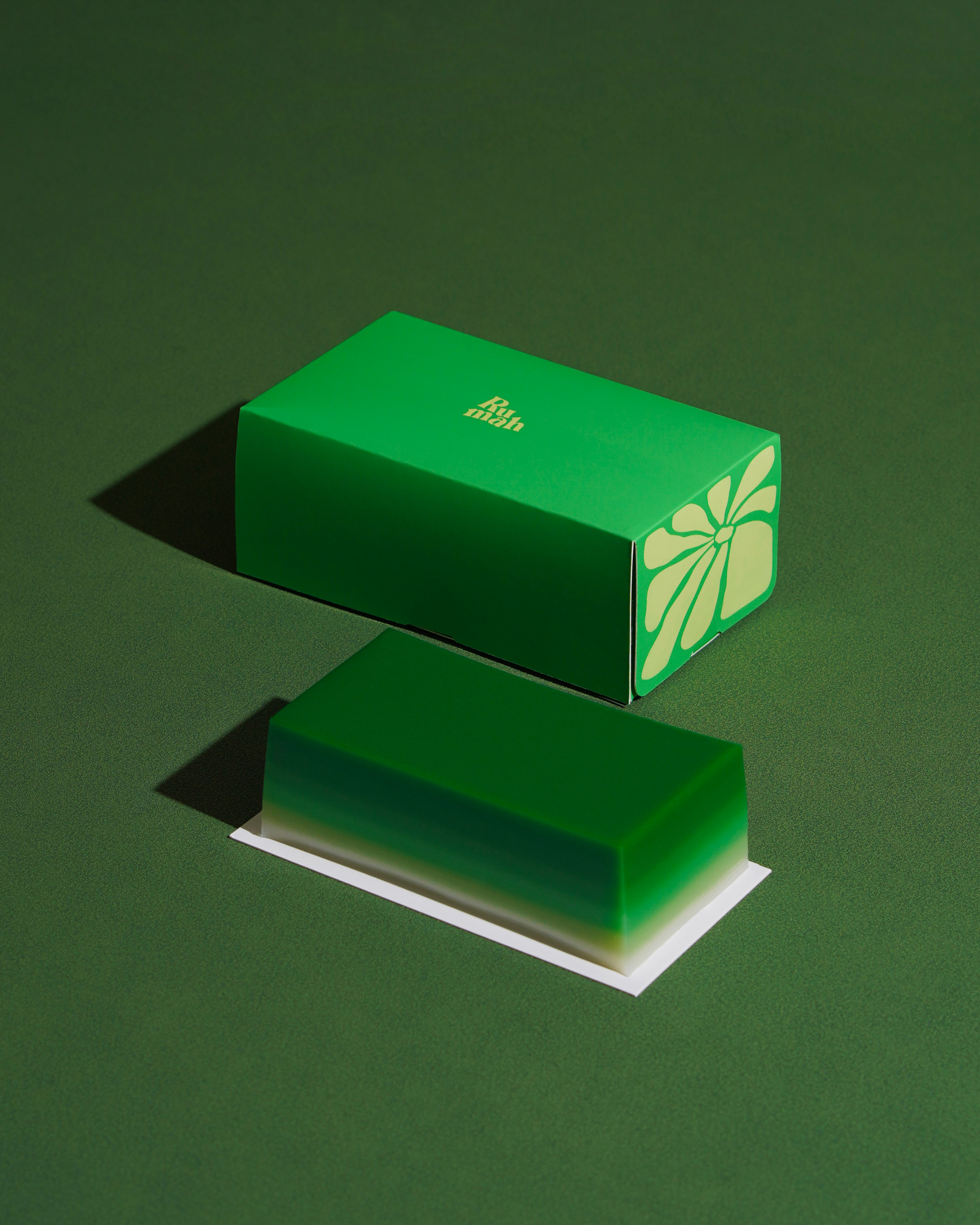
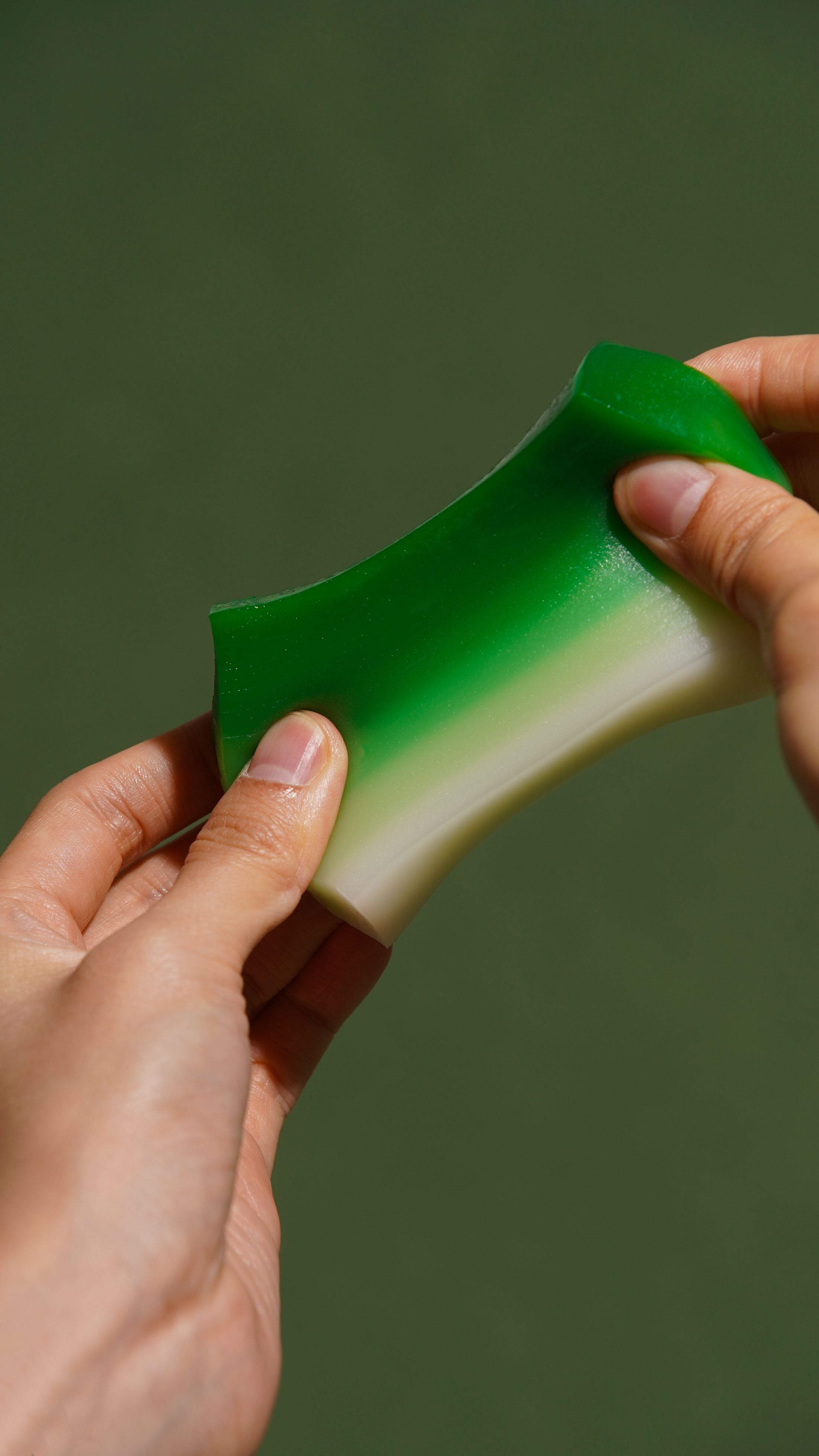
Rumah has also become a cultural bridge and emotional anchor for Indonesians living in Hong Kong—whether they’re third- or fourth-generation residents who have grown distant from their roots, or recent expats feeling disconnected from the local Chinese community.
For many, Rumah evokes a sense of home, awakening parts of their identity that may have been forgotten or never fully explored. It offers a space where Indonesian culture is celebrated and shared, helping individuals reconnect with their heritage through food, language, and community. At the same time, Rumah plays a vital role in introducing Hong Kongers to the richness of Indonesian traditions, fostering cross-cultural understanding and appreciation in a famously diverse city.


This success is particularly noteworthy given Hong Kong’s challenging economic climate. According to the South China Morning Post, the city’s F&B sector recently weathered a 14-month slump in retail sales, with only a slight rebound of 2.4% in May and 0.7% in June, according to official data.
The pressure is reflected in the numbers: as of April 30, Hong Kong held 17,154 restaurant licenses—255 fewer than the previous year. In the same period, 2,034 restaurants closed while 1,779 new licenses were issued, according to the Food and Environmental Hygiene Department.
Ng—also the founder of F&B consultancy Off Mnu—applied a savvy strategy to this tough environment. Rumah operates primarily on a pre-order model and through brand collaborations. A standout moment was their collaboration with ComplexCon Hong Kong 2025, where they created special blind boxes of layered cake for COMPLEX’s VIP customers.
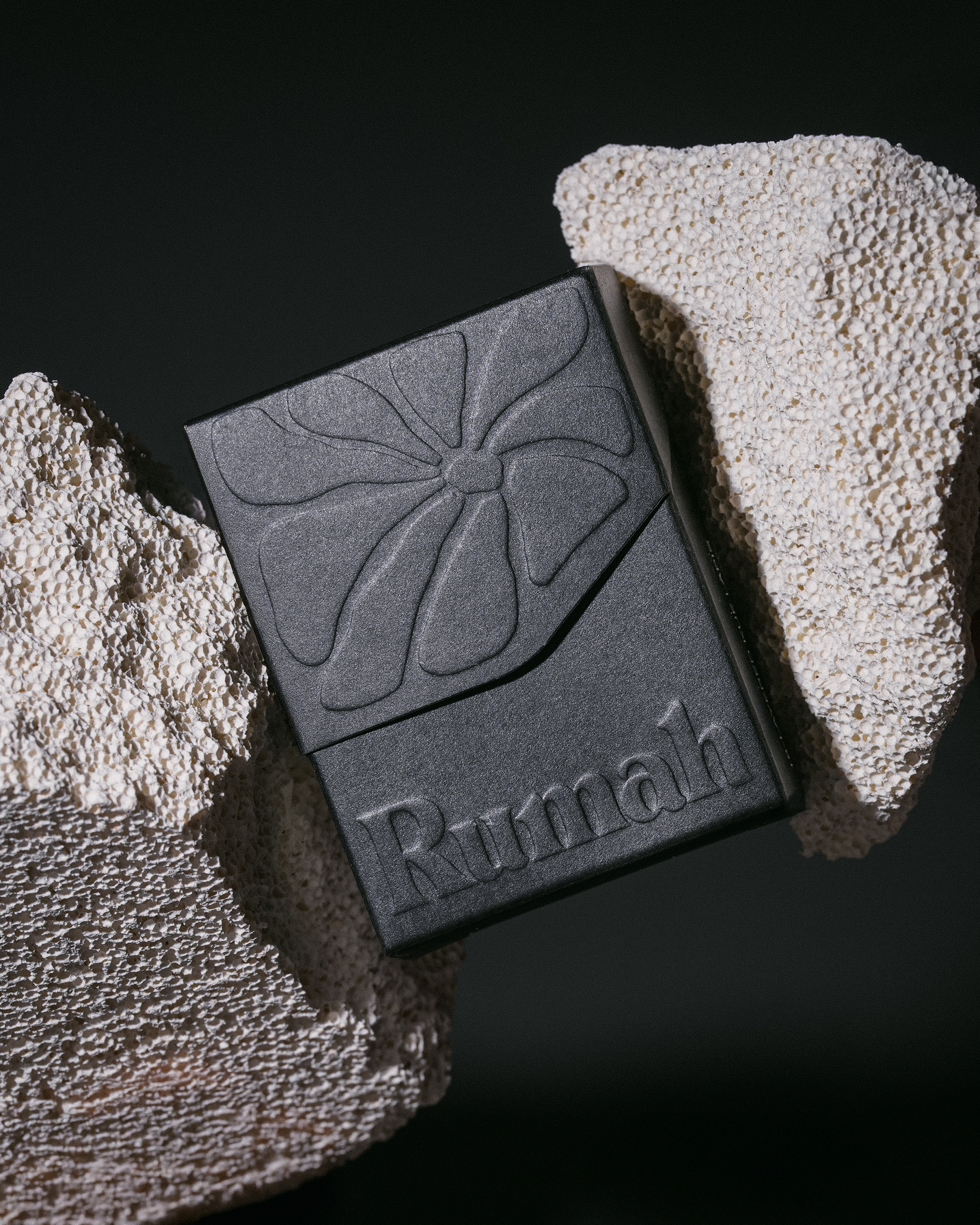
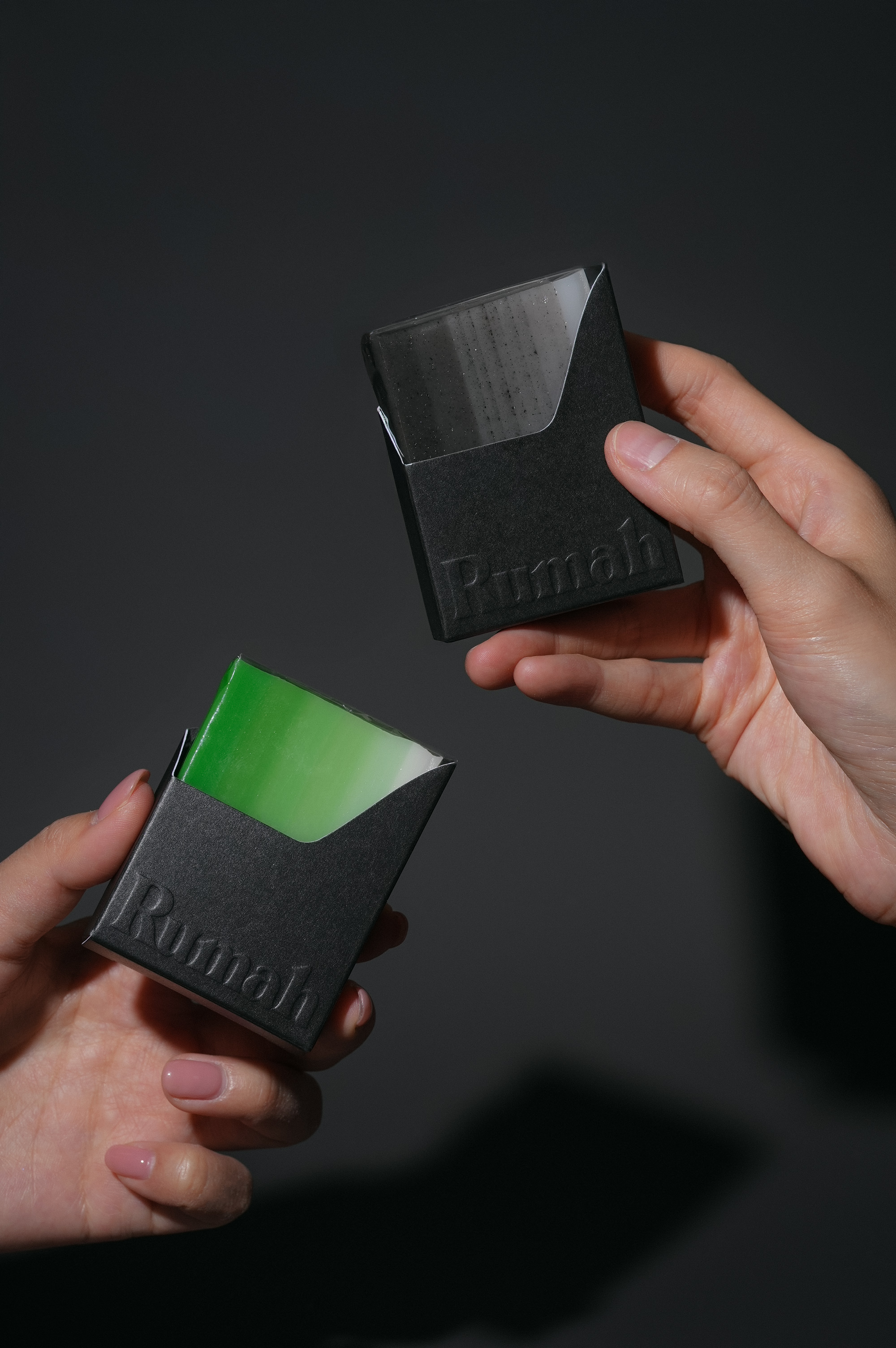
“This model lets us control inventory, minimize waste, and ensure demand always outpaces supply. That’s why our cakes sell out almost instantly,” Ng says, explaining that the pre-order system is crucial for a small business like Rumah to save on costs.
To amplify its reach, Rumah leans into creative marketing and collaborations with both local and global brands—tapping into a trend-savvy audience. One notable partnership was with OATSIDE, for which they reimagined the traditional onde-onde (a glutinous rice ball filled with palm sugar) into an oat-based version with a kaya filling, proving their ability to innovate while honoring classic flavors.
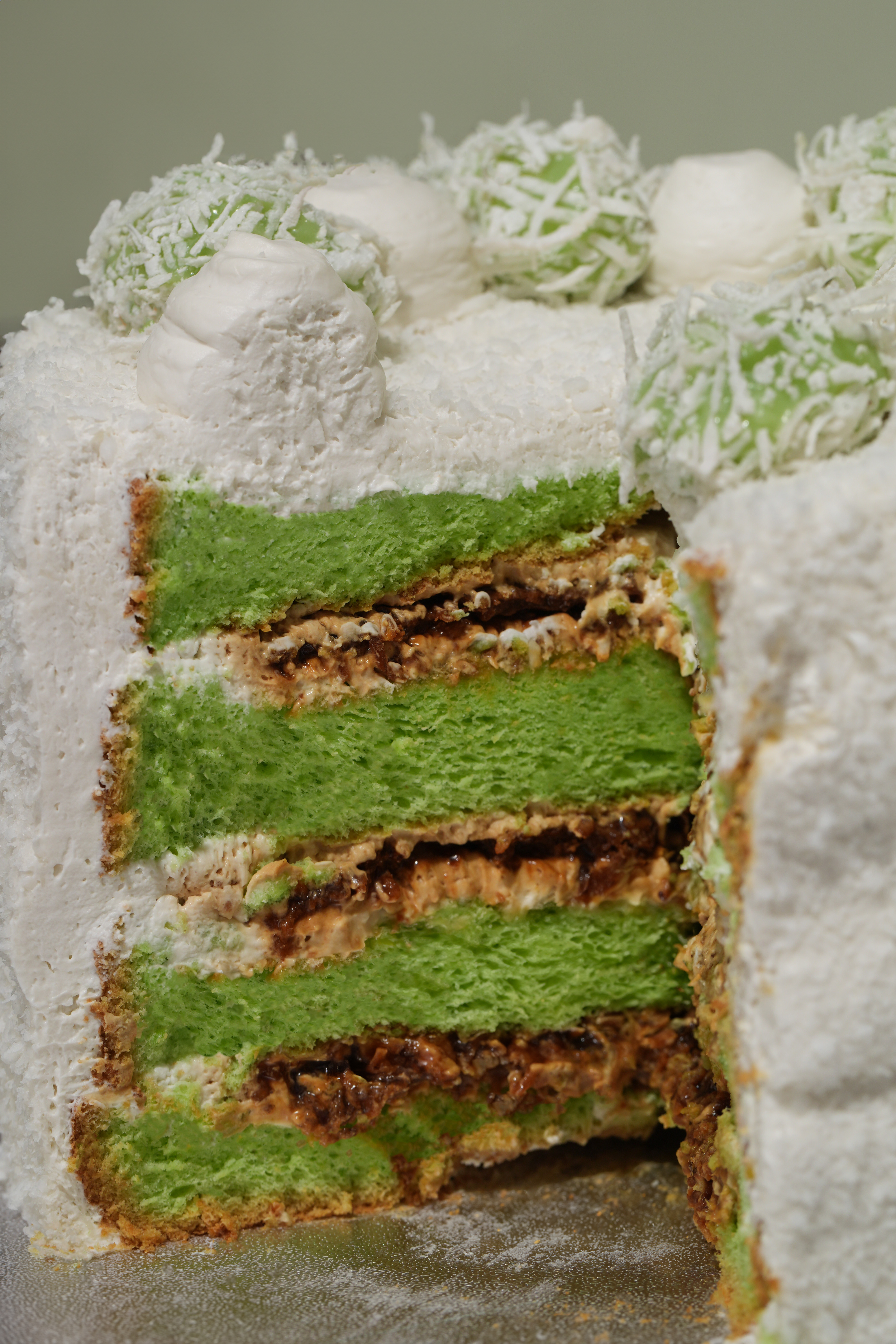

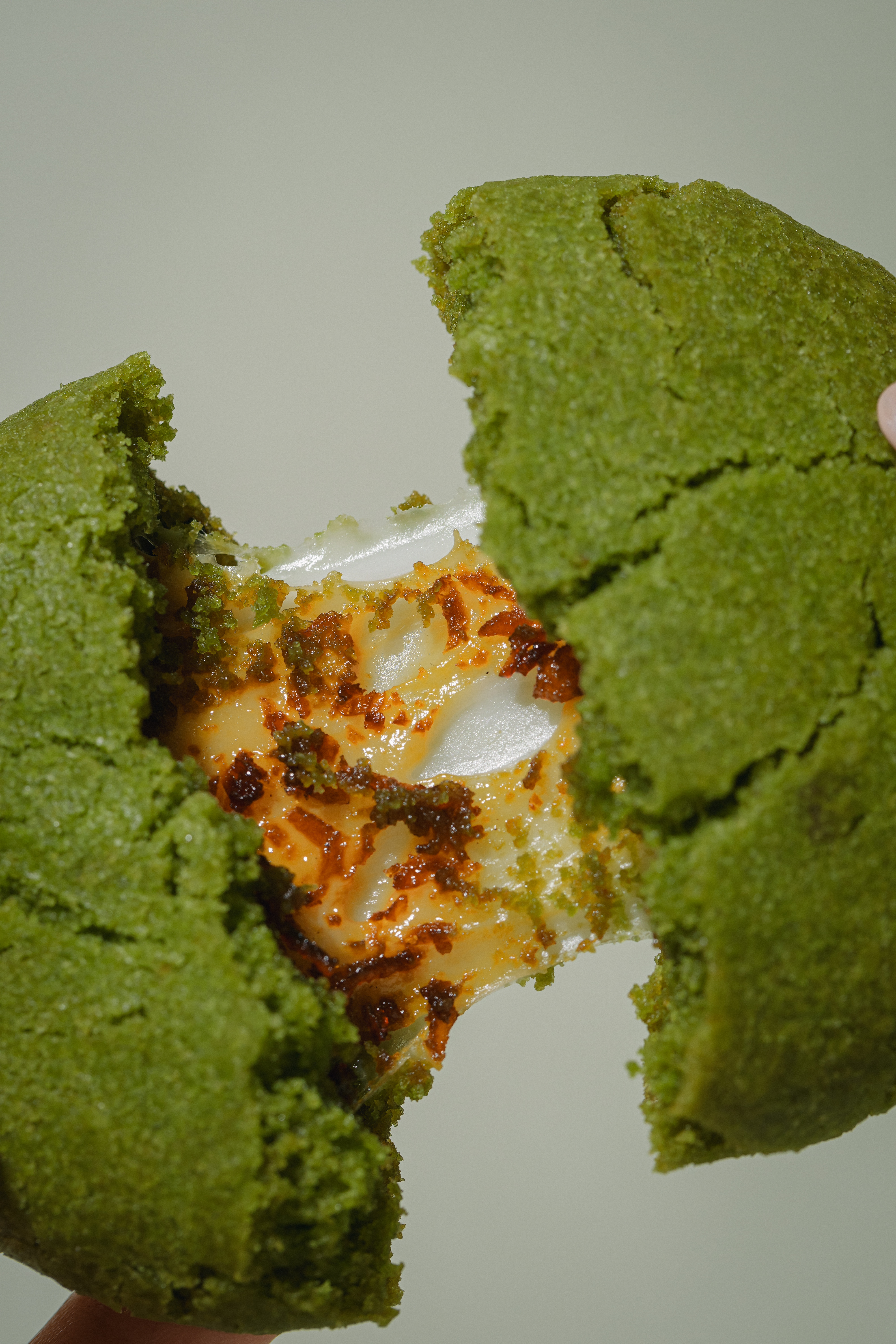
Their collaborations also extend to local cafés, including The Cakery and Hara Kako, as well as fellow Indonesian shop Scarlett’s—reinforcing Ng’s belief that food is a universal connector.
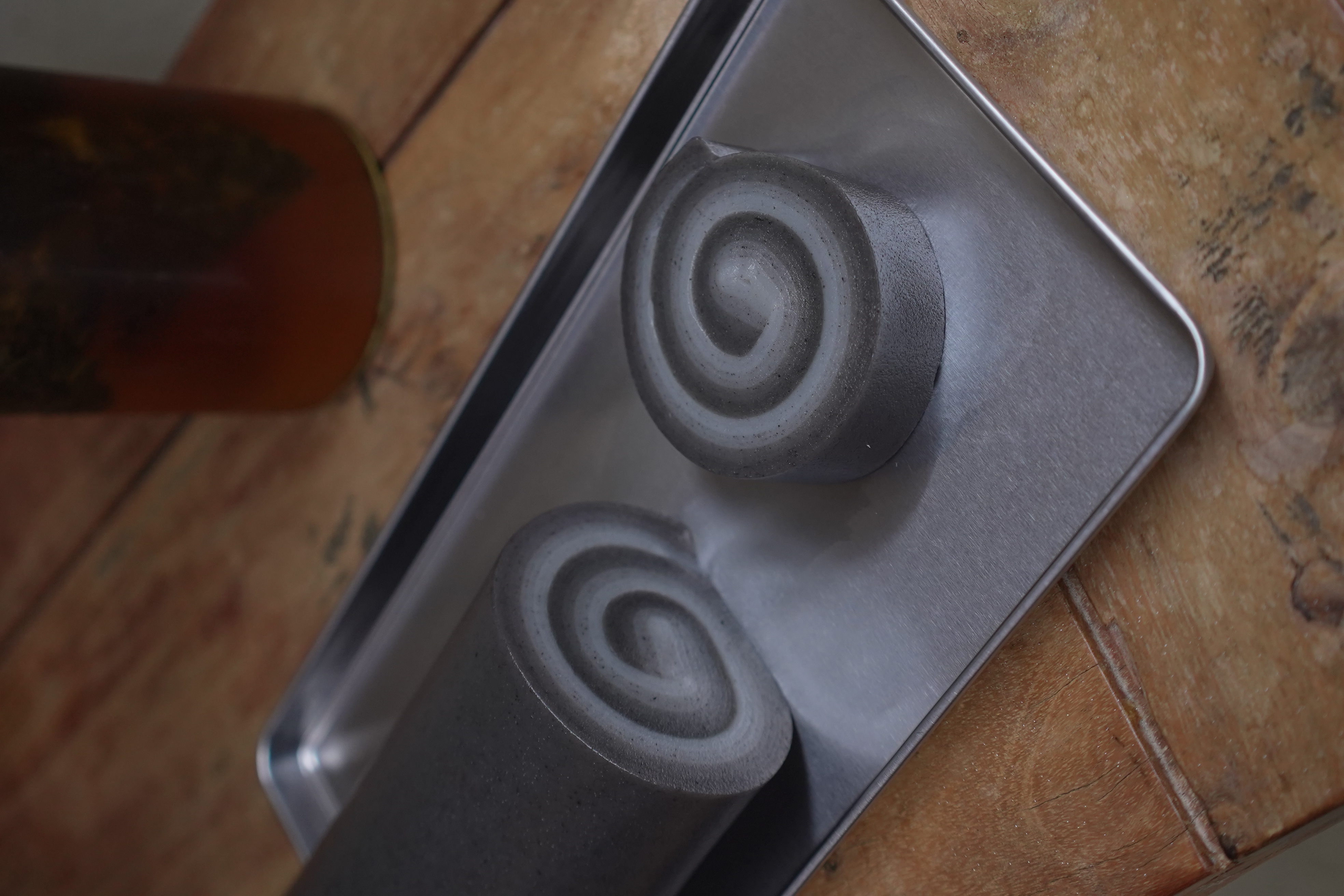
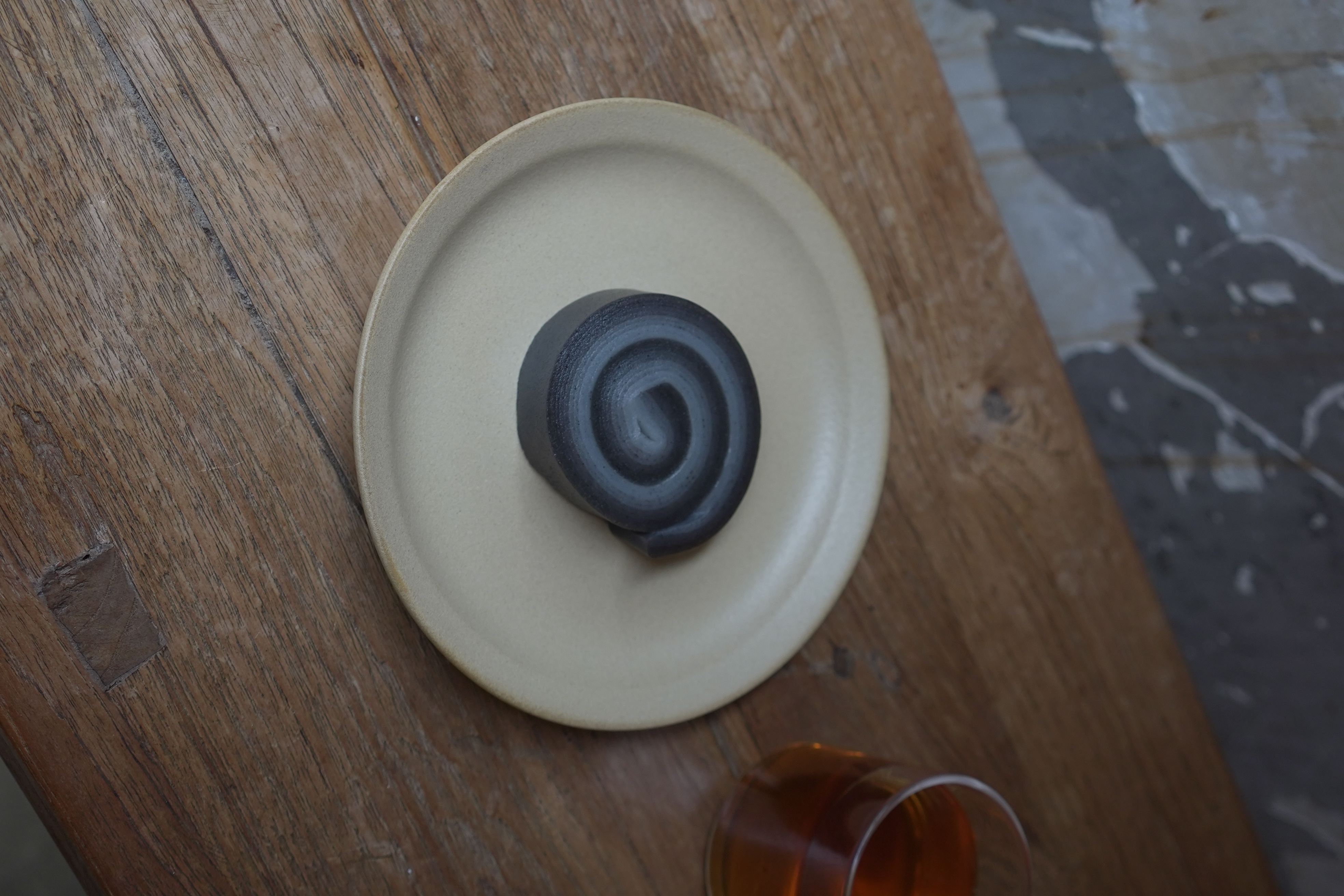
Still, for Chan and Ng, the ultimate goal is maintaining a delicate balance: preserving their culinary heritage without letting it become stagnant. “Many who work with their heritage feel a need to innovate, but overdoing it strips away the authenticity. For us, balance is key. We keep the core concept intact—like the fundamental flavor of kueh lapis—and make minor adjustments to help a new generation connect with it,” Ng says.
This careful balancing act is also smart business. By understanding local Hong Kong tastes, Rumah adapts its presentation without sacrificing authentic Indonesian flavor. The strategy taps into two powerful global trends: the widespread appeal of nostalgic flavors and the growing demand among younger consumers for updated, cleaner-label versions of traditional foods. According to Innova Market Insights 2024, one in two consumers is now drawn to nostalgic flavors while simultaneously seeking modern formulations that align with contemporary health and lifestyle needs.
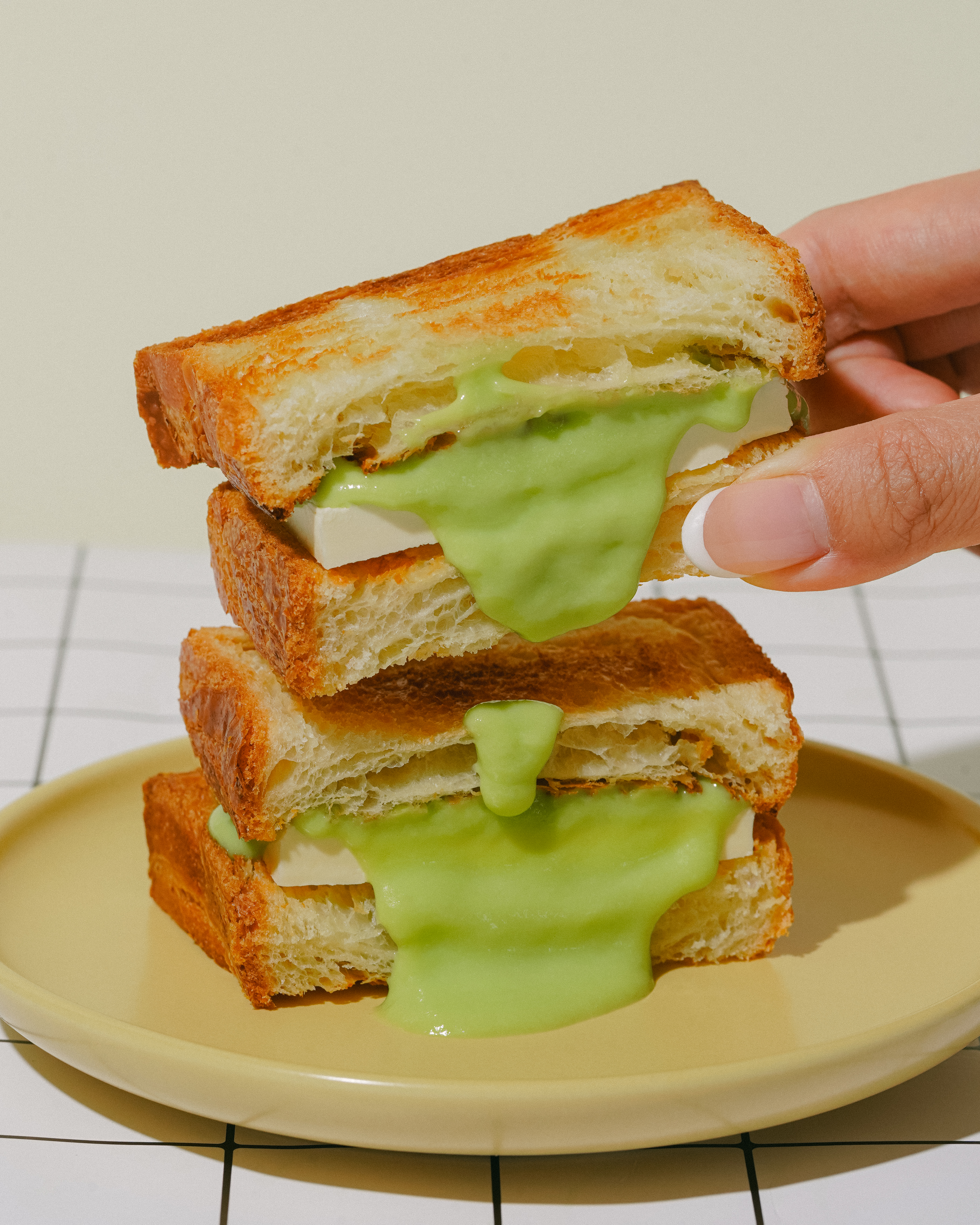
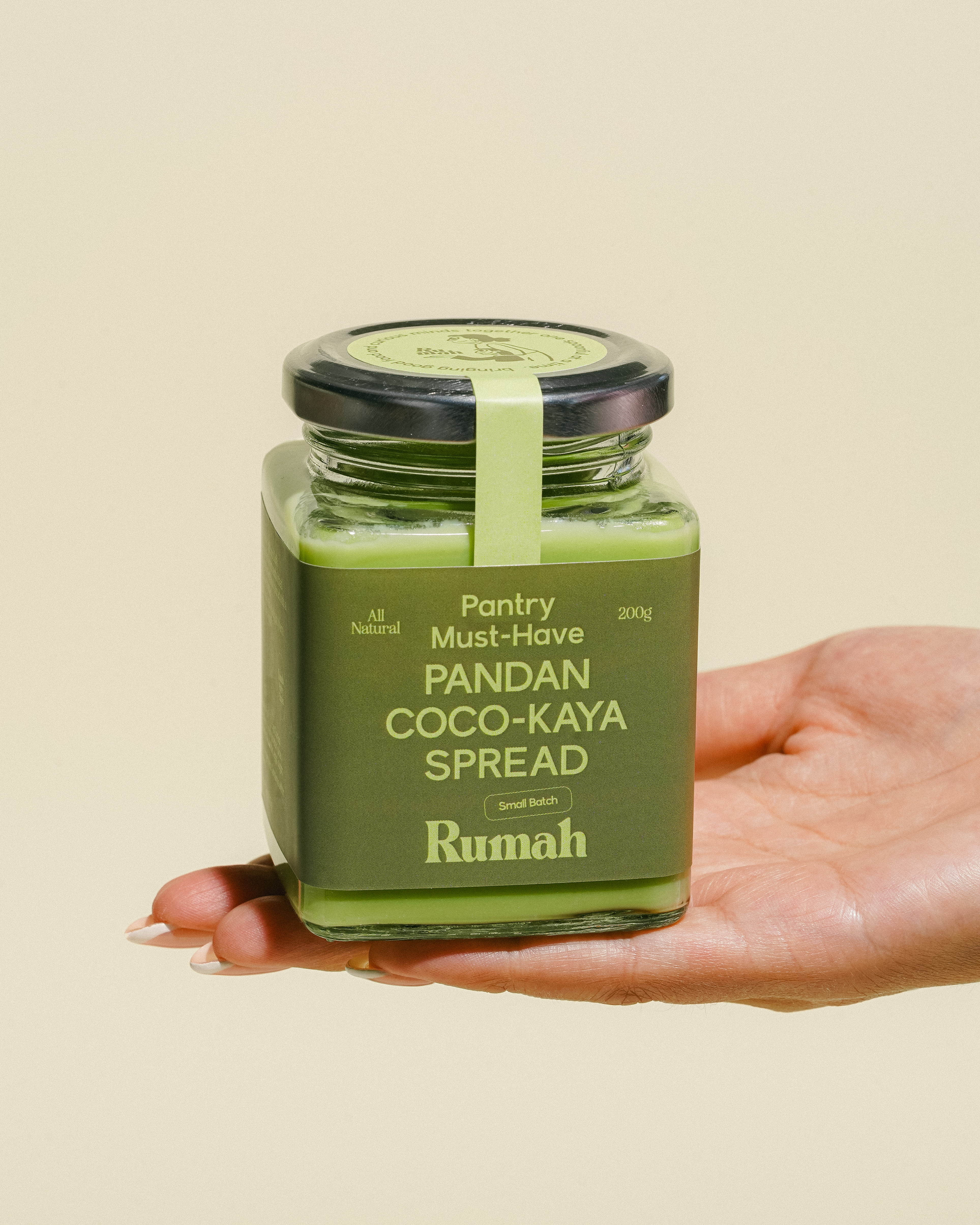
Ultimately, Rumah is more than a brand—it’s a mission. For Chan and Ng, every cake is a vehicle for connection, nostalgia, and cultural appreciation. Their business is built on a simple but profound idea: that every bite should taste like a reminder of home.
“Of course, a business needs to make money, but that wasn’t our reason for starting. We’re creatives at heart. We started Rumah to give back—especially for me, as an Indonesian building a community here in Hong Kong,” Chan says.



“I want to spotlight this culture and do something truly different. After a decade as an influencer in beauty and lifestyle, I felt a need to offer my audience something more meaningful. This is how I can use my platform to promote Indonesian culture here in Hong Kong,” she concludes.
All photos via Rumah.




